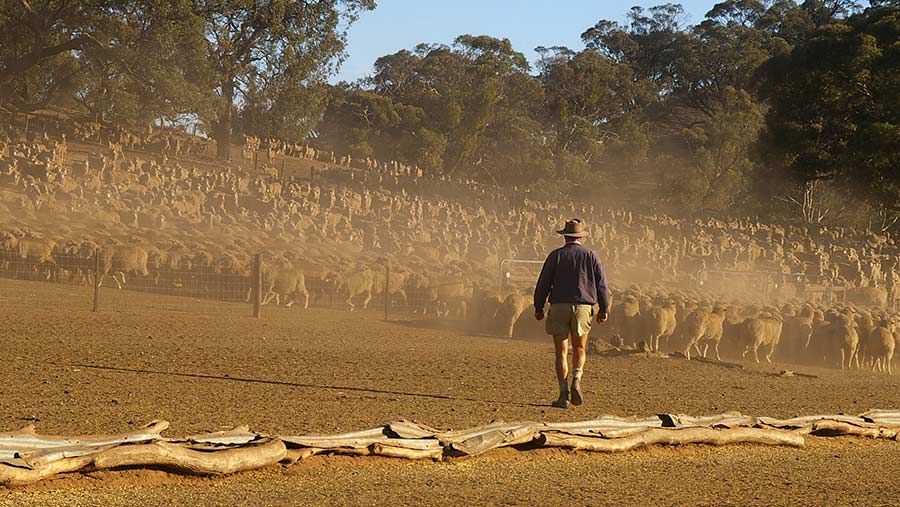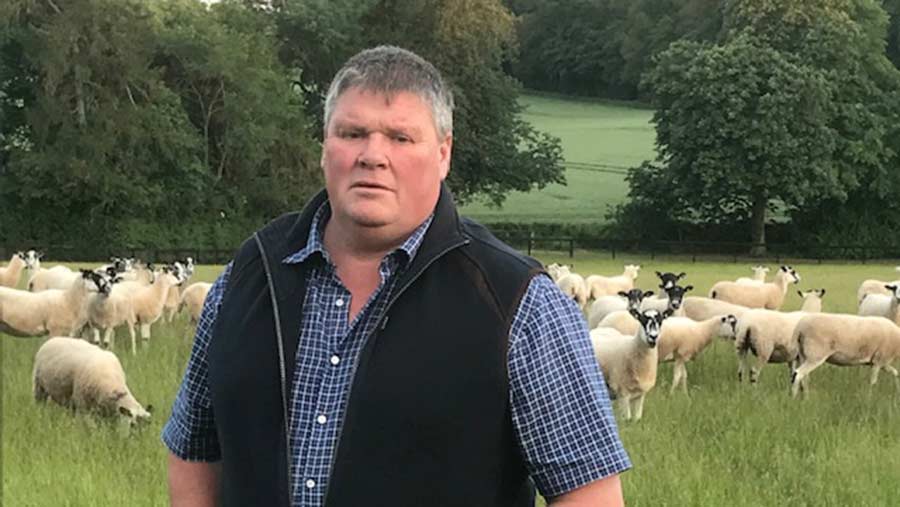Lobby MPs over Australia trade deal concerns, farmers told
 © Adobe Stock
© Adobe Stock Farmers are being urged to write to their MPs asking them to ensure their high standards are not undercut in a free-trade deal between the UK and Australia.
The plea comes after prime minister Boris Johnson confirmed this week that the two countries had signed an in-principle free-trade agreement – despite serious concerns about the damaging impact this could have on the UK food and farming industries.
Phil Stocker, chief executive of the National Sheep Association, said the government had made “promise after promise” that it would not allow farmers to be undercut by lower-standard food imports in any trade deals – but this deal risked doing just that.
See also: Opinion: Nothing to fear from a free-trade agreement with Australia
“We are being pushed to farm with higher standards and it will ultimately lead to more premium products, but then we will feed our people with foods that don’t meet our own standards,” said Mr Stocker. “There is something fundamentally and ethically wrong with that.”
Mr Stocker urged Farmers Weekly readers to write to their local MPs to express their concerns about the damaging effects this deal could have on farming families for generations to come.
“Any pressure we can put on MPs and the government to ensure the deal goes through proper parliamentary scrutiny of the independent advisory body, the Trade and Agriculture Commission (TAC), is vital,” he added.
The Conservative government has given reassurances that under the deal British farmers “will be protected by a cap on tariff-free imports for 15 years, using tariff rate quotas and other safeguards”.
But Martin Kennedy, president of NFU Scotland, branded the 15-year transition to zero tariffs as “merely a slow journey to the Australians getting unfettered access to UK markets” with “no safeguards” for British farmers.
How to lobby your MP
There are several options to lobby your MP:
- Face-to-face meeting
- Email or letter
- A phone call
- Contact them on Twitter or Facebook.
Details of your MP’s constituency surgery can be found on their website. Letters can be sent to their constituency address or to parliament (Houses of Parliament, House of Commons, London, SW1A 0AA).
Lower standards
Farming unions fear British farmers will struggle to compete with the scale of industrial farming from Australia which can offer cheaper produce due to the availability of space and their lower food safety and animal welfare standards.
They accused Mr Johnson’s government of trying to push through a hasty trade deal with Australia before the TAC has been properly set up to scrutinise such trade deals.
Mr Kennedy said agreeing an FTA with Australia without proper scrutiny “sets a dangerous precent” for other trade deals with major agri-food producing countries such as New Zealand, Canada and the US.
NFU president Minette Batters said the “ultimate test” of this trade deal would be whether it “undermines UK farming and merely exports the environmental and animal welfare impact of the food we eat”.
Case study: Dan Phipps, sheep farmer, Suffolk
Sheep farmer Dan Phipps fears a free trade deal with Australia will allow lower-standard food products to flood the UK market – and the government will just accept it.

© Dan Phipps
Mr Phipps lambs about 2,000 breeding ewes on the Godolphin horse stud in Newmarket, Suffolk, producing lamb for supermarkets, mainly Sainsbury’s. He is also chairman of the National Sheep Association.
“We’ve got environmental pressures coming in more and more on the way we farm,” he said. “But if it’s leaving a gap in the market, it doesn’t seem right that it’s going to be filled by something produced potentially to lower standards.”
The public would then be faced with two choices: either back British farmers and buy quality produce, or buy cheaper imported food not farmed under the same standards. “It would be upsetting to discover people pay less without the standards being as high as ours,” he admitted.
